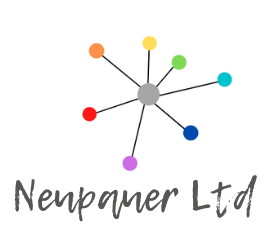How do you measure the impact of Soft Skills Training?
You might have heard phrases like Recruiting for culture not the hard skills; or values over skills as a direction for hiring talent and employees that fit in with the ethos of the company.
And it is true that it’s the people, not necessarily the hard skill that will drive your organisation forward. Or not.
But what about those who want to invest in their existing employees? The question I get asked a lot is ‘How do you measure the impact soft skills training has on the overall productivity’? To find out How soft Skills can Future proof your business read my post here.
It’s easy to measure hard skills, because often, the result is tangible product or increase in sales. With soft skills, it’s different because it all depends on the person, where they are emotionally, how well they adapt to situations and so many more variables no one can predict.
There is, however, a way to see the benefits of the training. And it all depends on your why.
What’s your why?
What I mean is your need for the training.
Are you struggling with retention?
Is it quiet quitting (see my article on Quiet Quitting)
Is the productivity below what’s expected? (Read Why the way we manage our employees must change)
Are employees engaging in interpersonal conflict which is affecting team morale? (Read Workplace Conflict: Is prevention better than Cure)
Do you need your employees to be more confident and assertive?
Are you looking to increase positive customer feedback and improve your reputation?
What else is behind your need to bring in Soft Skills training into your organisation?
The power of the Second Question
Your investigation isn’t done here. Now, you know the bigger problem, you must find out what is behind it.
Why are people leaving? And what are you doing to find the reason? Is it the management? Are they getting better pay for the same job elsewhere?
Why are people quietly quitting, doing bare minimum? What is the relationship between management and the team? Is there trust? Are the values aligned? Is there a conflict that needs to be resolved?
Why is productivity low? Again, is it because of the people, management or interpersonal conflict or is there lack of proper hard skills training (or soft skills in service and customer facing industry)?
Why are people not working together as they should? Yet again, is it due to management, rapport, relationships, and trust? Are the correct procedures and process in place for people to ‘trust the system?
Why is your customer feedback low or average? And yet again, what are the relationships between your employees and customers but also between the managers and employees.
As you can see, many of the problems you’re facing are based on interpersonal relationships. Either between the managers and employees or the between employees themselves.
You might have seen a lot of quotes around people leaving their managers not their jobs and this is very true.
People who feel valued, understood, and trusted will deliver much better results. To think that you need to improve how your managers interact with their team must change can be a daunting task. Even unpleasant and met with resistance but if you want to see changes and measure the impact Soft Skills Training will have on your team, it must be done.
So, how to you measure the impact of Soft Skills training?
Understanding what problems, you are facing, tracking the progress shouldn’t be too hard. Allow some time for behaviours to change, conduct regular meetings and one to ones, communicate with HR department to see what has changed and where you need to improve more.
Has the staff turnover decreased?
Are people coming to work happier and therefore their productivity and customer engagement increased?
Is there less interpersonal conflict and the team morale has significantly improved?
Are employees communicating with more confidence, meaning that problems get resolved a lot quicker because they feel more comfortable communicating and resolving issues as they arise instead of putting it off until the situation gets worse?
Are your customers happier, leaving positive feedback and recommending your product/service to their friends?
All the above and more will be a clear indication that the right Soft Skills Training is working. Make sure you invest in the areas that are right for your people. If you need help conducting an audit of your training needs or actual training, get in touch with Mia at mia@nepauer.org
Note
This might seem like a time-consuming task however, once you identify what is behind the problems, to find suitable solution will not only be easier but also cheaper because you will be able to address a specific problem with a specific training or a programme instead of wasting time and money on something that is not going to make a difference.
Go to Resources and download our free questionnaires to help you identify areas of improvement and to track the progress.
Remember, if your organisation requires drastic change in management, not everyone might be the right person for the organisation. You must do what’s right for your business, reputation, and your people. Read How many people are in therapy because of you? to find out the impact of bad management can have on people.

